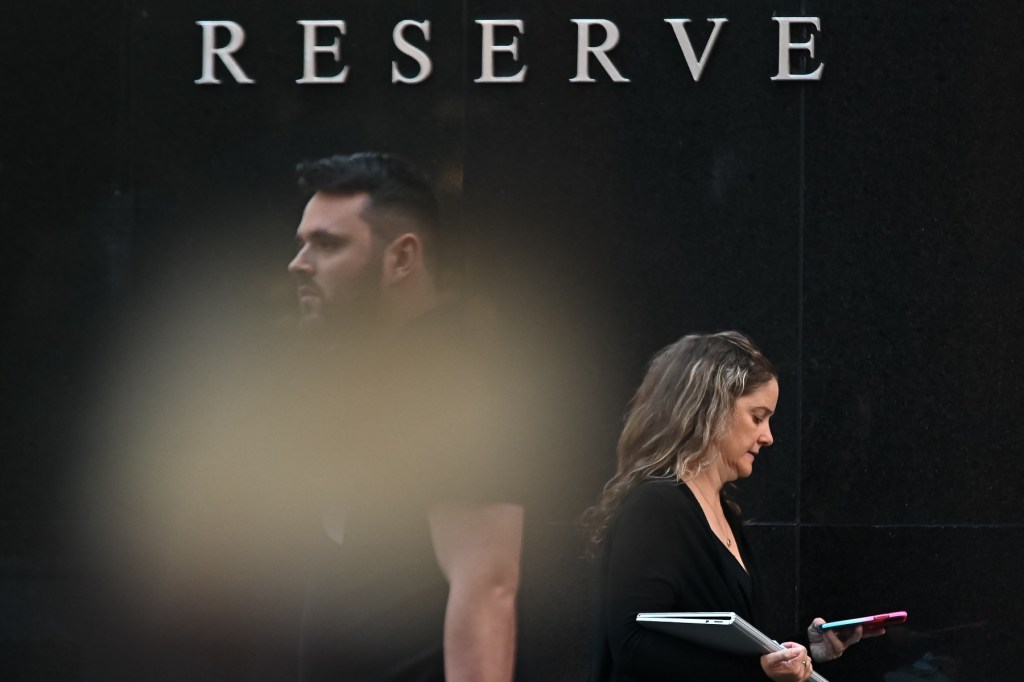How the ATO went from good cop to bad cop to claw back more than $50 billion in debt

- by Admin
- July 18, 2024
The tax office is once again perceived as the ‘bad cop’ on the beat and it’s the Albanese government that’s given it a mandate to go hard and recoup more than $50 billion in debt owed, most of it by small business.
The message is clear: the honeymoon period — extended during the COVID-19 pandemic — is now over for businesses.
During COVID lockdowns, the Australian Taxation Office (ATO) was the key agency responsible for ensuring $89 billion of JobKeeper wage subsidies arrived on time to almost 4 million businesses that were struggling to stay afloat.
The Liberal then-treasurer Josh Frydenberg had given regulatory agencies including the ATO, corporate watchdog ASIC and banking regulator APRA, a clear direction: don’t go too hard on businesses at this time.
That Liberal government’s “Statement of Expectations 2021” was aimed to protect businesses struggling during the pandemic.
It stated: The government expects ASIC to “ensure that guidance is not unduly prescriptive, and does not limit businesses’ discretion and flexibility to operate in the manner they see fit while still complying with the law”.
Subsequently, ASIC, according to a recent Senate inquiry, failed to launch proper investigations into reports of alleged corporate wrongdoing.
APRA also eased its approach to lending. The banking regulator eased restrictions on how much banks could lend to borrowers who started to take on loans six or more times their incomes with deposits of 10 per cent or less, before financial buffers were again tightened in October 2021.
The then-treasurer had also tried to wind back responsible lending laws that aim to protect borrowers from taking on too much debt, but the laws failed to pass the Senate.
And the ATO’s ‘we are here to help and assist’ attitude during the pandemic saw a pause in most firmer debt collection actions, which thereby allowed debts to keep accumulating.
While this approach allowed businesses stay afloat, the ATO notes it had also had a detrimental impact on payment culture.
“We are seeing more businesses not paying tax on time since before the pandemic began,” an ATO spokesperson told ABC News.
“It is imperative that we return to normal operations. The ATO is shifting focus to return to usual debt recovery processes.”
This message was echoed by incoming commissioner Rob Heferen at a speech before small businesses in April where he warned “there’s also a significant risk of businesses trading while insolvent and creating a situation where all creditors — including suppliers and employees — miss out on what they are owed”.
The problem is going from zero to 1,000 in its debt collection approach, in such a short-space of time and no less during a cost-of-living crisis.
This approach is now tipping small business owners over the edge.
Debts owed to the ATO skyrocket
The amount of debt owed to the ATO is staggering, and it has skyrocketed over this four-year period, when most debt collection activities were on hold.
Total collectible debt was $52.4 billion as of December 31, 2023, compared to $26.4 billion at the end of December 2019.
Small business debts account for $34.1 billion, or 65 per cent of total collectable debt.
Most of the collectable debt owed by businesses is self-reported business activity statement debt comprised of tax withheld from salary and wages, GST, and income tax on profits.
This is why the agency’s public messaging – and its communication with small businesses – started to dramatically shift last year.
In October, the ATO started warning thousands of businesses to engage with their tax and super obligations to avoid having their debts disclosed to credit reporting agencies.
“Through the pandemic we shifted our focus from debt collection to stimulus payments and assistance with tax, but it is now time to re-establish the culture of paying tax on time,” ATO Assistant Commissioner Jillian Kitto said at the time.
“Paying or engaging with the ATO is the only way to stop a business’s tax debt becoming visible in credit rating checks.”
At the same time, the ATO began ramping up its use of its powers that allow it to personally target company directors through what’s known as a Director Penalty Notice or DPN.
Since July 2022 and February this year, the ATO has issued more than 30,000 director penalty notices that make people personally liable for tax and superannuation debts and give them just 21 days to pay.
On late Friday morning, the ATO provided the ABC with updated data for the full 2023-24 financial year. It said in 2023-24, the ATO issued 26,702 director penalty notices (DPNs) and 6,150 garnishee notices.
A DPN may relate to a company a person wound up years ago. Or one they never knew existed.
But the director is now responsible for paying that debt, which in many cases runs into hundreds of thousands of dollars and could bankrupt them.
This has seen calls from financially distressed people to debt helplines skyrocket to unprecedented levels and it’s pushed the rate of insolvencies to around peaks seen just after the global financial crisis.
The ATO is also issuing more garnishee notices, a practice that allows the agency to take money directly from a person’s bank account or employer, and that came under fire following a joint Fairfax- Four Corners investigation.
In that investigation, ATO whistleblower Richard Boyle — now being prosecuted — detailed the damaging nature of garnishee notices on small businesses.
A subsequent report by the then-small business ombudsman Kate Carnell found that debt recovery action initiated by the ATO against small firms was having a “crippling” impact on many of them.
“Paying tax in Australia is not optional and the ATO’s job is to ensure everyone pays the right amount, to the benefit of all Australians,” an ATO spokeswoman said after releasing the fresh data requested by ABC News.
“If a taxpayer does not pay on time and does not respond to contact or refuses to engage with us, the ATO will apply a full range of firmer actions depending on the circumstances, including director penalty notices (DPN), garnishees, directions to pay, disclosure of business tax debt and prosecution actions to ensure payment on debts.”
Years of unpaid super is now being recouped
Aside from tax debts mounting, the issue that’s coming back to haunt employers, as well as causing more disputes with the tax office, is current and former company directors allegedly failing to pay their workers the correct amount of superannuation.
Superannuation is legally part of a worker’s wages and not paying it is a crime.
The law imposes hefty financial penalties for employers who do not pay.
The ATO disclosed that, at the end of 2022-23, more than $2.2 billion of collectable super debt was still owed by employers to employees.
For years, small businesses struggling with cashflow have used workers’ superannuation to prop themselves up.
The government has made it clear that not paying super is wage theft and it has to stop.
While the passing of time is no excuse not to pay workers’ super, in practice, trying to recoup money owed years after the event can be a messy affair.
As covered in an earlier story about workers being ripped off by their employers, the impact of that lost super compounds by the time they retire.
But recouping the money with interest from a director that stepped away from the now-defunct business years ago, or who was made a director without them even knowing (for example, in cases of domestic violence), can end in a dispute.
In the case on Andrew Christodoulou, the company administrator at the time had estimated more than $77,000 in super was owed to workers, his accountant now estimates $40,000 might be owed for the period, and the ATO estimates $437,000.
The ATO won’t tell Mr Christodoulou how it came to the $437,000 figure, just that he is responsible for paying it.
As liquidator Jarvis Archer notes, “the director is forced to shoulder the costs to try to dispute it”.
The law provides limited scope for the ATO to waive debts, although the agency has said it will consider waiving debts or the interest on debts if a director has a valid defence.
How a Director Penalty Notice can financially ruin
Mr Archer says a Director Penalty Notice might be the most important letter that person ever receives but, in many cases, people aren’t getting the letter.
The ATO simply uses a current or former director’s personal address registered at ASIC.
It doesn’t matter if the director moved away from that address years ago and didn’t receive the letter. It doesn’t matter that the letter didn’t get sent to their accountant.
If 21 days pass, the director is liable for the debt.
And that debt could be worth hundreds of thousands of dollars, which can send them bankrupt and in the process hurt their families.
No one doubts the law should protect workers getting their super.
It’s their hard-earned money and employers are responsible for paying it.
The issue is the way in which the ATO goes about recovering alleged debts.
Mr Archer says behind every one of about 11,000 company insolvencies in FY24 — most of them small businesses — are people and their families.
“For those of us working on the frontline, dealing with people in financial difficulty each day, we know some of the terrible things they’ve dealt with in recent years causing serious mental health issues,” Mr Archer says.
From July 1, 2026, all Australian employers will be required to pay superannuation to their employees at the same time they pay their wages.
This change, which was announced by Assistant Treasurer Stephen Jones in the 2023-24 federal budget, will make it clear to workers when super is owed by their boss.
It should also give the ATO better visibility to be able to chase down unpaid super in real-time rather than years after the fact.
Posted , updated
The Latest News
-
December 25, 2024Gearing Up for Australian Open, Nick Kyrgios Elevated in Bold Predictions From Renowned Tennis Experts
-
December 25, 2024Dads’ day out! Australian stars unwind with with wives, kids at MCG. Watch | Cricket News – Times of India
-
December 25, 2024India must continue to exploit ‘brittle’ Australian line-up: Ravi Shastri | Cricket News – Times of India
-
December 25, 2024Warne, Tendulkar, Muralitharan and (even) Gladstone Small: Eleven Boxing Day Test memories
-
December 25, 2024Where to watch Chiefs vs. Steelers in Australia: Streams, TV channel, time for NFL Christmas game live and on demand | Sporting News Australia



